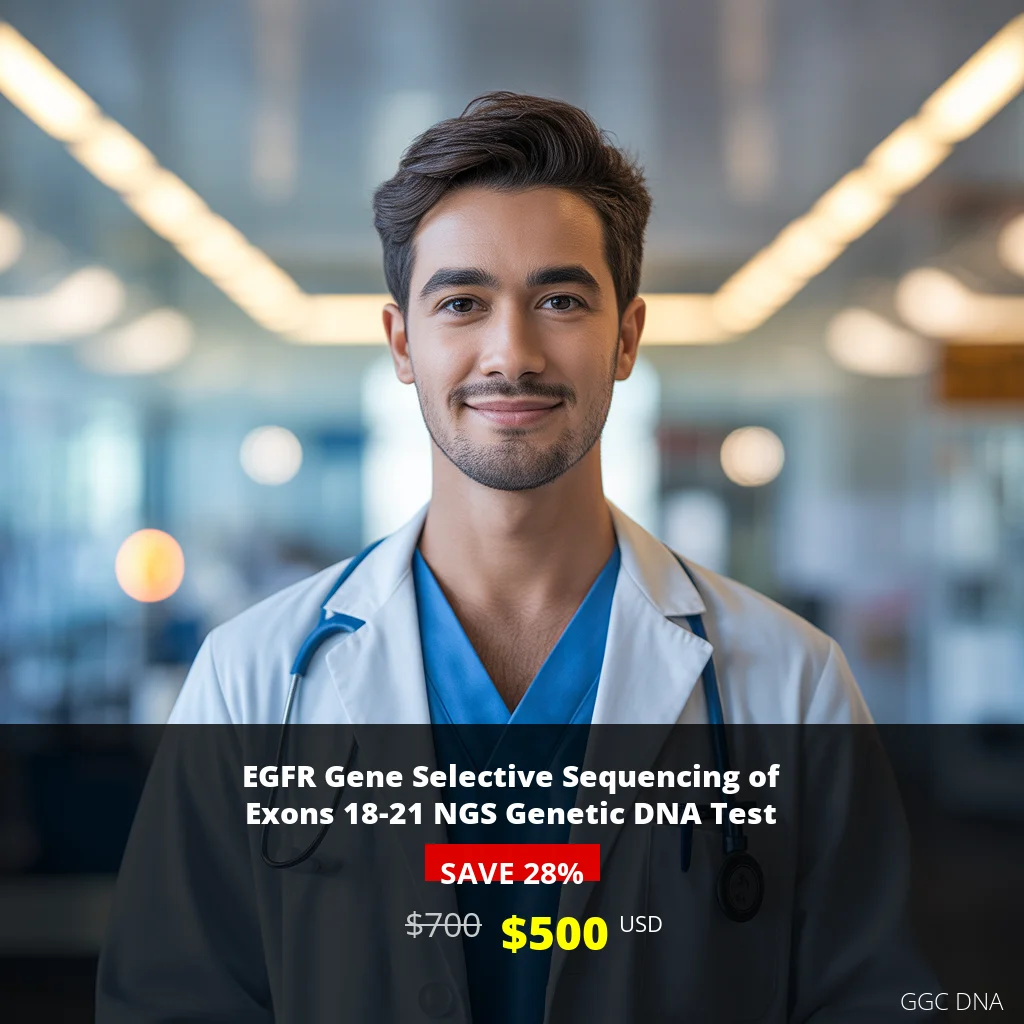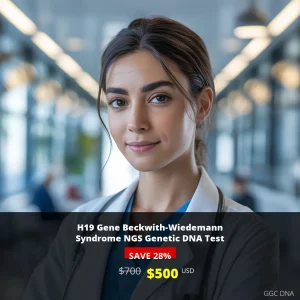EGFR Gene Selective Sequencing of Exons 18-21 NGS Genetic DNA Test
Comprehensive Introduction to EGFR Genetic Testing
The EGFR Gene Selective Sequencing of Exons 18-21 NGS Genetic DNA Test represents a breakthrough in precision oncology, offering detailed analysis of critical genetic mutations that drive cancer progression. This advanced diagnostic tool utilizes Next-Generation Sequencing (NGS) technology to examine specific regions of the EGFR (Epidermal Growth Factor Receptor) gene, providing clinicians with essential information for developing targeted treatment strategies.
EGFR mutations are particularly significant in non-small cell lung cancer (NSCLC), where they serve as biomarkers for targeted therapy selection. The selective sequencing of exons 18-21 focuses on the most clinically relevant regions where the majority of actionable EGFR mutations occur, making this test an indispensable tool for modern cancer care.
What the Test Measures and Detects
This sophisticated genetic test specifically targets and sequences exons 18 through 21 of the EGFR gene using NGS technology, providing comprehensive detection of:
- Activating Mutations: Common mutations including exon 19 deletions and L858R point mutations in exon 21
- Resistance Mutations: T790M mutations in exon 20 that confer resistance to first-generation EGFR inhibitors
- Rare Mutations: Uncommon EGFR alterations in exons 18-21 with clinical significance
- Treatment-Sensitive Variants: Mutations that predict response to specific EGFR-targeted therapies
Advanced NGS Technology
Next-Generation Sequencing provides unparalleled sensitivity and specificity, capable of detecting mutations present at very low frequencies. This high-resolution analysis ensures accurate identification of even rare genetic variants that could impact treatment decisions.
Who Should Consider This Test
This EGFR genetic test is particularly recommended for individuals with:
- Newly diagnosed non-small cell lung cancer (NSCLC)
- Advanced or metastatic adenocarcinoma of the lung
- Family history of lung cancer or EGFR-related malignancies
- Progressive disease despite conventional chemotherapy
- Need for treatment selection between EGFR inhibitors and other targeted therapies
- Suspected resistance to current EGFR-targeted treatments
Symptoms and Clinical Indications
Patients presenting with persistent cough, chest pain, shortness of breath, unexplained weight loss, or other symptoms suggestive of lung cancer should discuss EGFR testing with their oncologist. Early genetic profiling can significantly impact treatment outcomes and quality of life.
Benefits of EGFR Genetic Testing
Undergoing EGFR Gene Selective Sequencing offers numerous advantages for cancer patients:
- Personalized Treatment Planning: Identifies patients who will benefit most from EGFR-targeted therapies
- Improved Treatment Outcomes: Enables selection of the most effective medications from the start
- Reduced Side Effects: Avoids unnecessary treatments that may not be effective
- Monitoring Treatment Response: Helps track the development of resistance mutations
- Informed Clinical Decisions: Provides crucial data for oncologists to make evidence-based treatment choices
- Cost-Effective Care: Prevents spending on ineffective treatments and focuses resources on proven therapies
Understanding Your Test Results
Your EGFR genetic test results will provide detailed information about specific mutations detected in exons 18-21. Here’s a general guide to interpreting your results:
Positive for EGFR Mutations
If the test identifies specific EGFR mutations, this indicates that targeted EGFR inhibitor therapies may be particularly effective. Your oncologist will discuss appropriate treatment options based on the specific mutation profile.
Negative for EGFR Mutations
A negative result means that no clinically significant EGFR mutations were detected in the tested regions. Your healthcare provider will explore alternative treatment strategies and may recommend testing for other genetic markers.
Variant of Uncertain Significance (VUS)
In some cases, the test may identify genetic changes whose clinical significance is not yet fully understood. Your genetic counselor and oncologist will help interpret these findings in the context of your overall health picture.
Test Information and Pricing
| Test Component | Details |
|---|---|
| Test Name | EGFR Gene Selective Sequencing of Exons 18-21 NGS Genetic DNA Test |
| Regular Price | $700 USD |
| Discount Price | $500 USD |
| Turnaround Time | 3 to 4 Weeks |
| Sample Type | Blood, Extracted DNA, or One Drop Blood on FTA Card |
| Technology | Next-Generation Sequencing (NGS) |
Pre-Test Requirements
Before undergoing EGFR genetic testing, patients should provide:
- Complete clinical history relevant to EGFR testing
- Participation in a genetic counseling session
- Development of a pedigree chart documenting family members affected by EGFR-related conditions
Nationwide Accessibility
We have diagnostic branches conveniently located across the United States, serving patients in all major metropolitan areas including New York, Los Angeles, Chicago, Houston, Phoenix, Philadelphia, San Antonio, San Diego, Dallas, San Jose, and many other cities. Our nationwide network ensures that advanced genetic testing is accessible to patients throughout the country.
Take Control of Your Cancer Treatment
Don’t leave your treatment decisions to chance. The EGFR Gene Selective Sequencing of Exons 18-21 NGS Genetic DNA Test provides the critical genetic information needed to develop the most effective, personalized cancer treatment plan. Our experienced genetic counselors and oncology specialists are ready to guide you through the testing process and help interpret your results.
Ready to take the next step in your cancer care journey? Book your EGFR genetic test today by calling our dedicated healthcare line at +1(267) 388-9828 or schedule your appointment online. Our team is available to answer your questions and help you understand how genetic testing can optimize your treatment outcomes.







